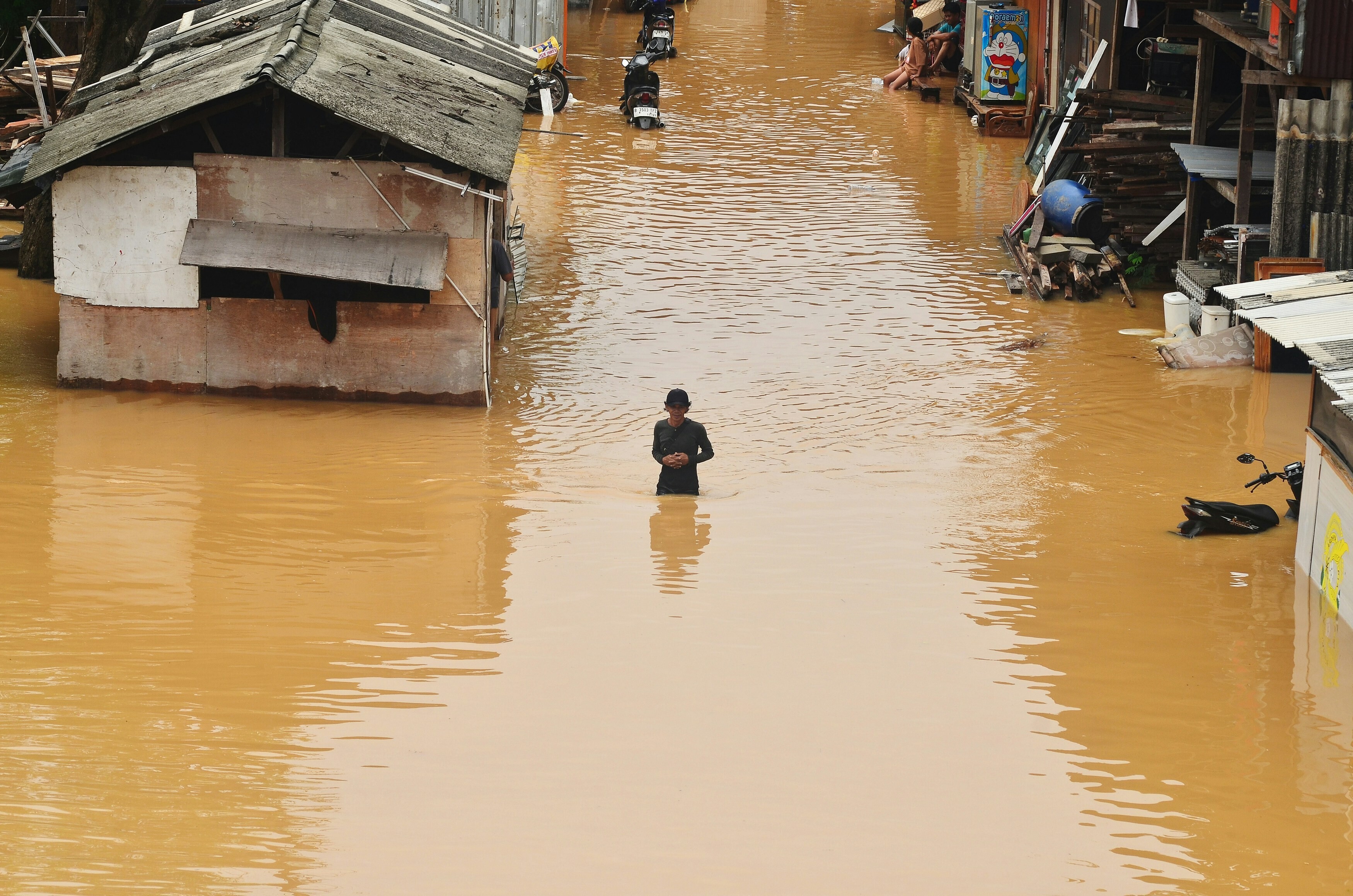What are business executives most worried about as they plan for the year ahead?

A survival map for businesses: tackling economic turmoil, climate chaos and cyber threats Image: Getty via Unsplash+
- Ahead of the launch of the World Economic Forum's Global Risks Report in January 2025, Zurich Insurance Group (Zurich) and Marsh McLennan have released a digest of the Forum's 'executive opinion survey'.
- The survey gathers insights from 11,000 business professionals across 121 countries.
- Here, Peter Giger, Group Chief Risk Officer, Zurich Insurance Group, looks at tackling economic turmoil, climate chaos and cyber threats.
The Executive Opinion Survey 2024, conducted by the World Economic Forum and released by its strategic partners, Zurich Insurance Group (Zurich) and Marsh McLennan, captures the insights from 11,000 business professionals across 121 countries.
Complexity
As businesses navigate an increasingly complex risk landscape, it is essential to take a proactive stance and broaden the focus beyond economic risks. 2024 is on track to be the warmest year on record, and so the escalating impacts of climate change must not be ignored.
The rapid advancement of emerging technologies will help to overcome the growing challenges, but they also pose new threats. By proactively identifying and mitigating these diverse risks, businesses can build resilience and thrive in the face of uncertainty. Addressing these issues head-on will not only safeguard operations but also position companies for sustainable success in the future.
These are four of the top concerns.
1. Economic threats: A dominant concern
Concerns about the state of the economy will not go away. Despite some signs of economic improvement, business leaders across the G20 countries consider economic threats, such as inflation, and labour and talent shortages, as the top risks over the next two years, emphasizing their belief that a stable economy is a critical ingredient to survive and progress.
2. Interconnected risks: Economic and societal challenges
The survey also points out that societal risks are closely linked to economic risks, acting both as a cause and consequence. This interconnectedness means that economic downturns can worsen societal issues and vice versa.
Comparing global results with those from G20 business leaders, we find similar concerns, with four of the top five risks matching. However, there's a notable difference: global professionals often overlook environmental risks, whereas the G20 includes them as a top risk. This highlights the need for a broader perspective, as environmental risks are increasingly common and devastating.
3. Environmental risks: Rising threats
Extreme weather events featured in the G20’s top five risks, as the fifth biggest risk. This follows a year in which many G20 countries – including Brazil, Germany, Indonesia, and the U.S. – experienced severe flooding, above-average rainfall, wildfires, extreme heat, or elevated hurricane activity.
Environmental threats should not be ignored. The frequency and severity of climate-related events require businesses to incorporate environmental risks into their risk resilience plans to avoid catastrophic consequences for companies and economies.
4. Cyber Risks: A growing concern
The survey also shows growing concern about cyber risks among business leaders. In five of the G20 countries surveyed, cyber threats rank among the top risks. Issues such as misinformation, disinformation and the adverse outcomes of artificial intelligence technologies are particularly worrying, as they can undermine trust, disrupt operations, and cause significant financial losses.
These risks appear six times in the country-specific top five rankings this year, up from just three mentions in 2023. It was ranked as the number one risk for doing business in Indonesia, the number three risk for the U.S. and the number four risk for doing business in the UK.
Remain vigilant
The global system has so far proved surprisingly resilient. Nevertheless, we should not relax our vigilance, and building upfront the resilience to a variety of risks is key. While it is impossible to predict all future risks, it is essential for businesses, governments and individuals to remain vigilant, adaptable and proactive in identifying and mitigating potential emerging risks. This includes investing in research, fostering innovation and developing robust risk management strategies.
Don't miss any update on this topic
Create a free account and access your personalized content collection with our latest publications and analyses.
License and Republishing
World Economic Forum articles may be republished in accordance with the Creative Commons Attribution-NonCommercial-NoDerivatives 4.0 International Public License, and in accordance with our Terms of Use.
The views expressed in this article are those of the author alone and not the World Economic Forum.
Stay up to date:
Economic Growth
Related topics:
Forum Stories newsletter
Bringing you weekly curated insights and analysis on the global issues that matter.
More on Global RisksSee all
Agnes K Y Tai
December 15, 2025






